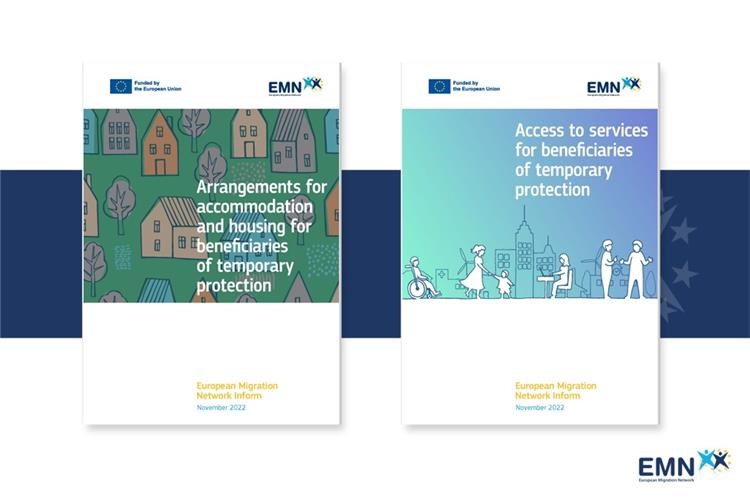- Published: 24.11.2022.
Two new EMN informs on the topic of temporary protection published
New EMN informs published highlight arrangements for accommodation, housing, and access to services for beneficiaries of temporary protection from Ukraine
Most Member States use a combination of different forms of accommodation to host people fleeing Ukraine namely reception centers, hotels/hostels, used mostly for emergency situations, and private homes. Private households have also played a very important role in responding to the need to accommodate displaced people, especially because the housing capacity of many Member States is limited.Article 13(1) of the TPD stipulates that, if necessary, persons enjoying temporary protection should receive the means to obtain housing. Duration and amount of this financial support vary from one Member State to another, but in general, it is based on the number of persons accommodated and entails lower rates for children. The financial allowance is given either directly to the beneficiaries of temporary protection in case they do not live in reception centers, to local and municipal institutions, or to private households hosting beneficiaries. Funding the latter acts as an incentive to support and recognize the effort and contribution of private individuals and is an important factor in encouraging private households to provide accommodation to beneficiaries of temporary protection.
Allowing beneficiaries of temporary protection access to labour has been identified as a priority and several Member States have offered a wide range of services including counselling, language courses, vocational training, and childcare. In parallel, services for skills validation and recognition have also been promoted, as they are considered key to increasing job opportunities. Translation services, information campaigns and job search portals were launched for both beneficiaries of temporary protection and employers.
Article 14(1) of the TPD requires Member States to grant all persons under 18 years of age entitled to temporary protection access to the education system under the same conditions as their own nationals. To ensure this, many Member States allocated funds for the opening of additional classes and initiated integration support measures such as supplementary language courses. A special emphasis was also placed on simplifying the processes of access to schools, especially in the case of missing documents certifying the degree and type of education, which in most cases were replaced by self-declaration certificates. Access to higher institutions, such as universities, is not guaranteed in most Member States, mainly because the entry process is run by the universities themselves. Some countries, however, grant funding for a certain period or exemption from tuition fees.
Access to the health system, which is guaranteed by Article 13 (2) of the TPD, is also critically important. In several Member States, beneficiaries of temporary protection have full access to the public healthcare system on equal terms with nationals. In others, they have access to emergency medical services. Sometimes health coverage may vary depending on the level of contribution to the national health scheme. All responding Member States reported that beneficiaries of temporary protection were granted access to mental healthcare.
